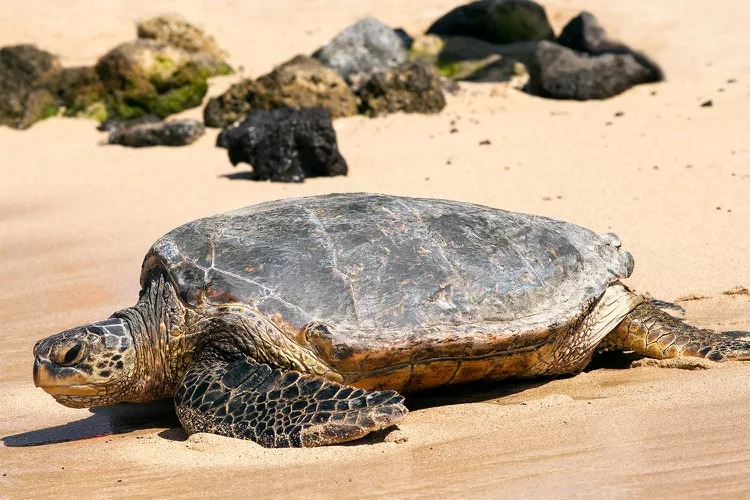
A tragic incident has struck Pemba Island in the Zanzibar Archipelago, claiming the lives of eight children and one adult, while leaving 78 others sickened after consuming sea turtle meat. This culinary delicacy, despite its cultural significance in the region, has been revealed to harbor a deadly threat — chelonitoxism, a rare and fatal form of food poisoning for which there is no known cure.
Sea turtle meat holds a revered status on Pemba Island, where it is relished as a delicacy. However, the recent outbreak has shed light on the dangers lurking within this seemingly exotic fare. Chelonitoxism, a term that strikes fear into the hearts of locals and health officials alike, is the grim reality faced by those who indulge in this particular culinary delight.

The National Library of Medicine defines chelonitoxism as a severe type of food poisoning exclusively caused by the consumption of marine turtles. All parts of the sea turtle, it seems, carry the potential for toxicity, manifesting in symptoms ranging from mild gastrointestinal discomfort to severe neurological complications, coma, and ultimately, death.
Dr. Haji Bakari, the medical officer for Mkoani District, revealed the heartbreaking detail that the adult victim was none other than the mother of one of the deceased children, underscoring the devastating toll exacted by this foodborne illness. Laboratory tests confirmed the grim correlation between the consumption of sea turtle meat and the subsequent fatalities.
The insidious nature of chelonitoxism lies in its mysterious origins. Chelonitoxins, the toxins responsible for this deadly affliction, are believed to accumulate in the sea turtle’s flesh without visibly affecting the creature itself. This poses a grave risk to unsuspecting consumers, with symptoms initially manifesting as gastrointestinal distress before progressing to neurological, hepatic, and renal complications.

Tragically, even infants are not spared from the perils of chelonitoxism. The National Library of Medicine warns that breastfeeding from a mother afflicted with the illness can result in sickness or death for the child, amplifying the urgency of addressing this public health crisis.
Compounding the tragedy is the absence of a viable treatment for chelonitoxism. With the pharmacology and chemistry of the toxin shrouded in mystery, medical interventions are limited to providing supportive care, such as intravenous fluids, to alleviate symptoms and mitigate the severity of the illness.
This is not the first time Pemba Island has grappled with the deadly consequences of consuming sea turtle meat. In 2021, local authorities enforced a ban on its consumption following a similar outbreak that claimed seven lives, including that of a young child. Now, as the community mourns the loss of innocent lives, a disaster management team has been dispatched to Zanzibar, led by Hamza Hassan Juma of the House of Representatives, to implore residents to refrain from partaking in this perilous culinary tradition.

In the wake of this tragedy, Pemba Island serves as a sobering reminder of the dangers posed by seemingly innocuous culinary practices. As communities mourn their loved ones and grapple with the aftermath of this devastating outbreak, it is imperative that efforts be redoubled to raise awareness, enforce regulations, and protect vulnerable populations from the insidious threat of chelonitoxism.

Leave a Reply